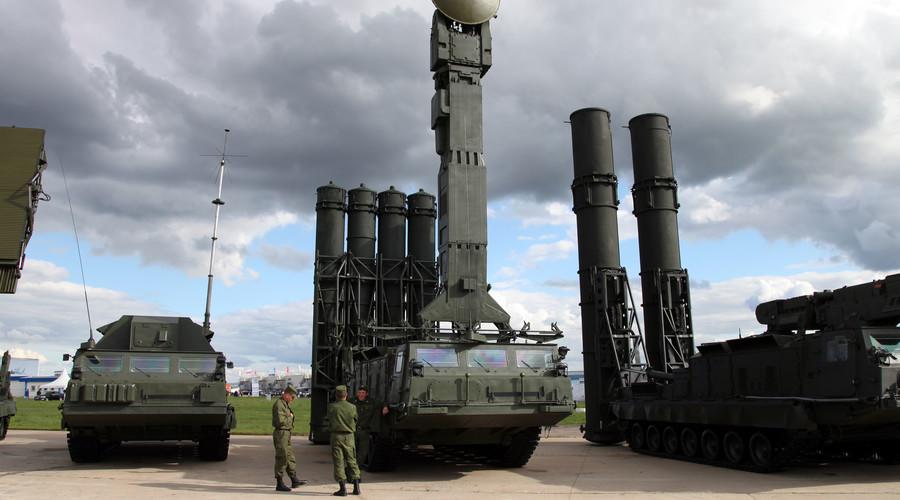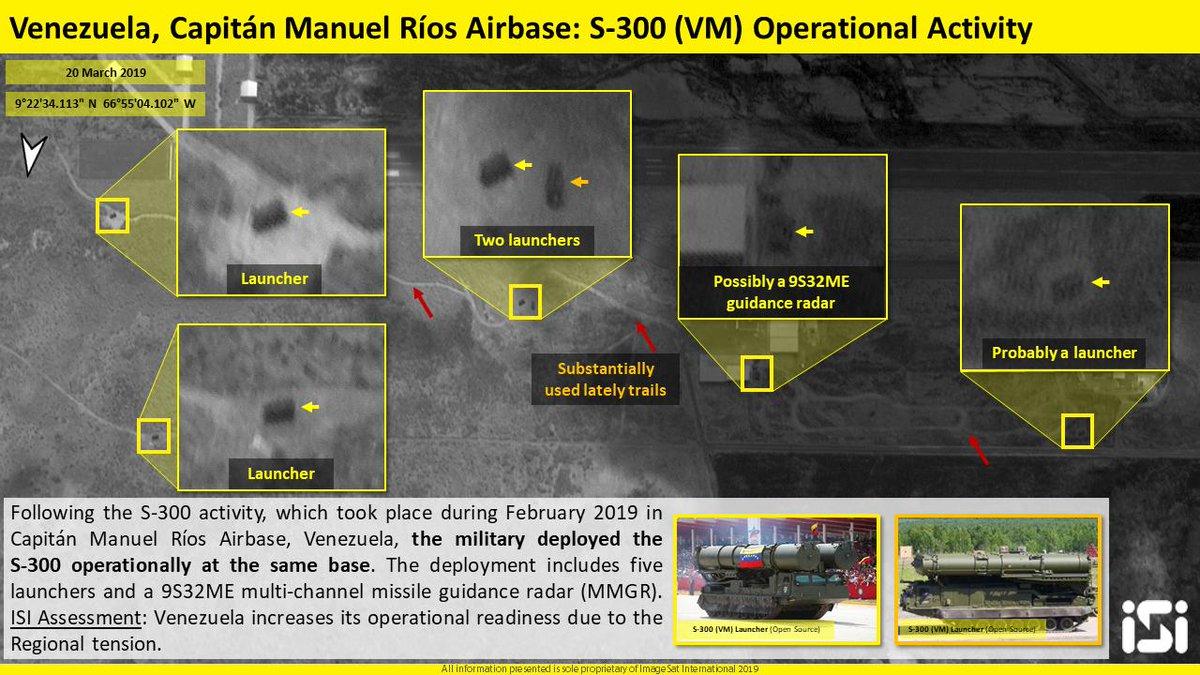WORLD WAR III
See other WORLD WAR III Articles
Title: Venezuela Military Deploys S-300 Missiles Following Russian Troop Arrival
Source:
ZeroHedge
URL Source: https://www.zerohedge.com/news/2019 ... ollowing-russian-troop-arrival
Published: Mar 26, 2019
Author: Tyler Durden
Post Date: 2019-03-26 15:04:33 by Hondo68
Keywords: None
Views: 1815
Comments: 2
Following the major weekend development of Moscow unambiguously asserting its 'red line' concerning potential US military intervention in Venezuela, for which Russia sent a military transport plane filled with Russian troops which landed in Caracas Saturday, new satellite images reveal a major deployment of S-300 air defense missile systems to a key airbase south of Caracas. Crucially the Russian An-124 transport plane which touched down in Caracas on Saturday carried no less than Russian General Vasily Tonkoshkurov, identified as chief of the Main Staff of the Ground Forces and First Deputy Commander-in-Chief of the Land Forces of Russia, accompanied by 99 servicemen and 35 tons of cargo. As we reported the flight came just days after a high-level meeting in Rome last week, during which Russia reiterated a grave warning to the US – Moscow will not tolerate American military intervention to topple the Venezuelan government with whom it is allied - thus it appears Russia is taking no chances with its South American ally. One of those warnings delivered directly by Russia’s deputy foreign minister Sergei Ryabkov to US “special envoy” on Venezuelan affairs Elliot Abrams is understood to have been that no American military intervention in Venezuela will be tolerated by Moscow. And just a day following the contingency of Russia troops landing in Caracas, Maduro's National Bolivarian Armed Forces have reportedly activated S-300 missiles after completing military drills that previously took place in February. The professional monitoring service Image Satellite International (or Image Sat) has published satellite imagery it analyzed, showing additional S-300 missiles that have been deployed to the Captain Manuel Rios Airbase in the Guarico state of Venezuela. No doubt, the timing of the S-300 redeployment is purposeful, meant to send a strong message to Washington, though it remains unclear just how active the Russian military will be in Venezuela. Image Sat commented on the new images: "The deployment includes five launchers and a 9S32ME multi-channel missile guidance radar (MMGR). Venezuela increases its operational readiness due to regional tension." #Followup: #Venezuela has put the #S300 into #operational readiness, after conducting drills in February 2019 (as reported previously by #ISI).#Colombia #intelligence #Satellite #military #defence #defense #MaduroRegime #Update #imagery pic.twitter.com/JerkoIcozn — ImageSat Intl. (@ImageSatIntl) March 24, 2019 Perhaps paralleling the Syria situation, this could be the start of a scenario where the greater the proxy action and threats from the United States, the more Russia will slowly intervene at the behest of Maduro. All of these developments signalling closer Russian-Venezuelan military-to-military cooperation in the face of Washington saber rattling come after three months ago the two allies held military exercises on Venezuelan soil, which the US at the time had condemned as Russia encroachment in the region. But now with a high level Russian commander on the ground, and with Russian-made S-300s under the control of Maduro forces, it is unlikely that the US will act forcefully following the failed coup attempt of the past two months.
 Image via AMN News
Image via AMN News
Post Comment Private Reply Ignore Thread
Top • Page Up • Full Thread • Page Down • Bottom/Latest
#1. To: hondo68 (#0)
Meh. This is apparently the single S-300 system that Chavez bought from Russia, along with 92 tanks, for a $2 billion loan clear back in 2009. Reuters: Venezuela buys powerful missiles with Russian loan, 9/13/2009 Russia also sold S-300 to Iran around the same time but only actually delivered the hardware in the last few years. And the S-300 is only mid-Eighties Soviet technology. These tanks and the S-300 were aimed much more at Columbia and their border skirmishing with Venezuela. These would not be a serious defense against an attack by a U.S. carrier group.
Random Guyido is banned from government in Venezuela, but he is still working for the CIA and Donald's Venezuelan Revolutionaries. Che Donnell, tool bag
#2. To: Tooconservative (#1)
Venezuela Strips Guaido Of Public Office For 15 Years


Top • Page Up • Full Thread • Page Down • Bottom/Latest
[Home] [Headlines] [Latest Articles] [Latest Comments] [Post] [Mail] [Sign-in] [Setup] [Help] [Register]

